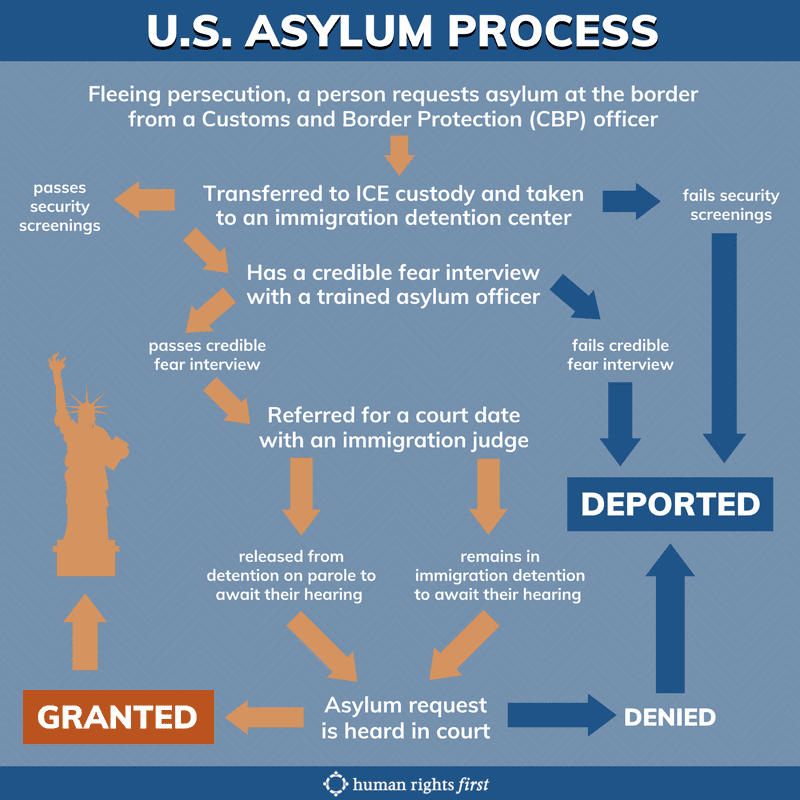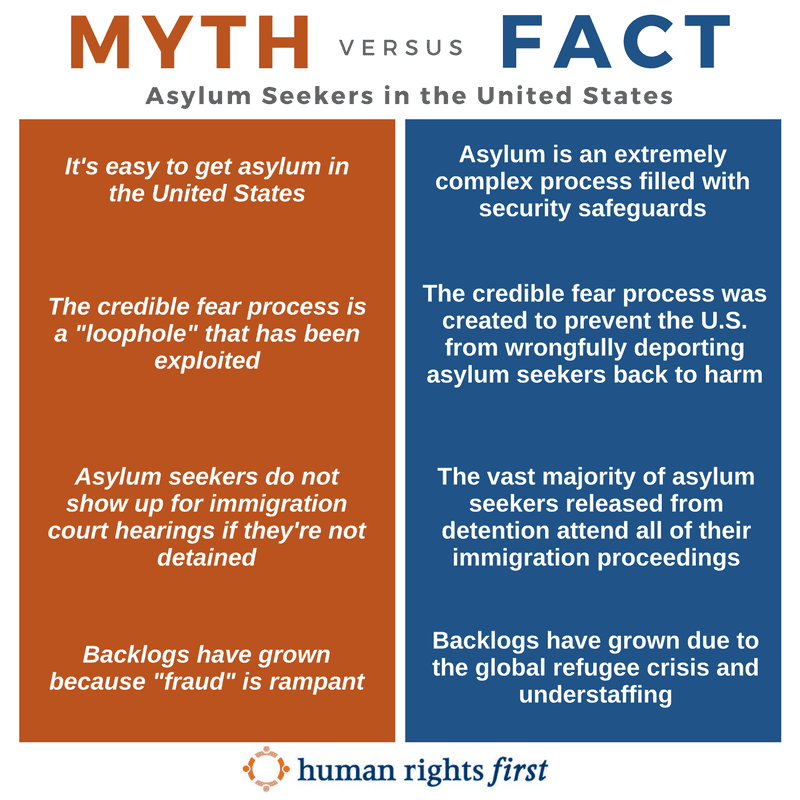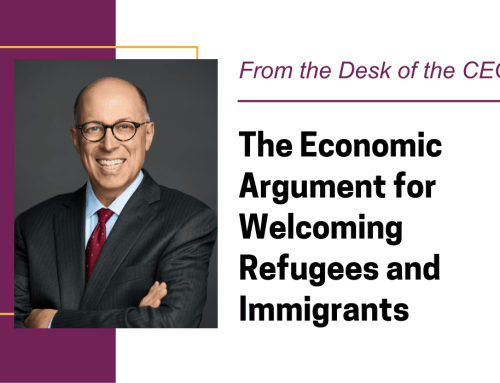Talking points on refugee caravan & root causes driving forced migration from Central America.
Prepared by American Friends Service Committee, Alianza Americas, Evangelical Lutheran Church of America, Jesuit Conference Office of Justice and Ecology, Kids in Need of Defense, Latin America Working Group, Women’s Refugee Commission, Washington Office on Latin America.
- The caravan is a reflection that the conditions of violence, corruption and impunity in the Northern Triangle countries of Central America (NTCA) –Guatemala, Honduras and El Salvador- have not ended. In 2016, the three NTCA countries had a combined total of 14,870 homicides, and individually were still well above the minimum number of homicides identified by the United Nations to constitute an epidemic of violence—with El Salvador at 81 murders, Honduras at 58, and Guatemala at 27 per every 100,000 inhabitants. In the first six months of 2017 alone, children were the victims of multiple homicides and massacres in Honduras, and murders of LGBTI individuals are on the rise. Domestic violence, and other sexual and gender-based crimes against women and children are pervasive throughout the region, and perpetrators are seldom brought to justice. In Central America SGBV rates are extremely high. In El Salvador in 2017, a woman was murdered every 18 hours and 46 minutes, and in Guatemala an average of 62 women are murdered every month. Honduras has the highest femicide rate in the world; a woman is murdered every 16 hours. High impunity rates—at or over 95 percent for such crimes in El Salvador, Guatemala, and Honduras–foster widespread violence and distrust in government. Internal displacement, often a precursor to international migration, continued to increase in 2017 in El Salvador and Honduras, with a lack of responses from governments to ensure that internally displaced persons (IDPs) have access to basic services and protections.
- The repression of Honduran citizens by security forces following contested elections last year, which the United States ended up backing, has likely fueled forced displacement and migration of its citizens as exemplified by the high number of Hondurans in the caravan and a reported spike of people leaving Honduras immediately after the election. Honduras held presidential elections in November 2017; the Organization of American States (OAS) urged new elections, saying that the announced results lacked credibility. Repression by security forces since November has resulted in at least 30 killings, mostly of protesters and the vast majority by the military police. Journalists, direct service providers, and human rights defenders continue to be targeted and threatened. Military police also threatened and arrested individuals living in neighborhoods that were involved in protests. The United States has recognized the government of President Juan Orlando Hernandez despite highly questionable elections, evidence of corruption, and human rights violations. Until these violations are investigated and prosecuted and assistance to the Honduran military is withheld, among other steps to address the repression, the emergency situation in Honduras will continue fueling displacement and migration. Immigration service providers in southern Mexico have reported a trend of increased arrivals of Honduran migrants since the election.
- The root causes of this migration are fueling displacement and migration not just to the United States but also to Mexico, which received a record number of asylum applications last year. Mexico received 14,496 asylum applications in 2017, the highest number being from Honduras. This number is up from 8,796 applications received in 2016 and 3,424 in 2015, the majority from Central America. Asylum applications to other countries in Central America such as Costa Rica, Belize, and Nicaragua have also increased.
- The Mexican government has maintained a consistent level of apprehensions and deportations of migrants under its Southern Border Program, with U.S. support, while its asylum system remains weak. Apprehensions and deportations of migrants in Mexico have remained at consistent levels for the past four years. Deportations in the first two months of 2018 have already surpassed those from the same period in 2017. In 2015, Mexico deported more Central Americans than the United States. While the Mexican government has made some improvements in screening individuals for protection concerns, allowing some asylum seekers to undergo their processing outside of detention facilities, and increasing the staff of its National Commission to Assist Refugees (COMAR), obstacles and delays still mar a weak and underfunded asylum system.
- Migrants traveling through Mexico face dangerous terrain and criminal networks. Migrants who enter Mexican territory are subject to crimes by corrupt migration enforcement agents, often working in collusion with organized crime, criminal networks that target migrants, and other dangerous actors. Numerous reports and articles have highlighted the murder, kidnapping, rape, human trafficking, and extorsion endured by migrants in Mexico. 99% of crimes against migrants remain in impunity. Increased enforcement has forced migrants to take more dangerous and clandestine paths.
- The caravan does not represent a massive influx of individuals to the U.S.-Mexico border. Border crossings remain at historic lows. As Customs and Border Protection (CBP) data demonstrates, southwest border crossings for FY18 are lower than FY17 and FY16 for the same period to date. Total border crossings for FY17 represented a record low since the 1970s.
- People have the right to seek asylum in a country where they feel safe, including the United States or Mexico. An individual’s right to seek international protection should be upheld by the U.S. and Mexican governments according to international law, Mexico’s constitution, and U.S. law which recognizes the right to present oneself at the border to seek protection. The U.S. and Mexican governments should uphold due process, the right not to be detained indefinitely, to not be returned to danger, and the right to maintain family unity and not be separated. Increased border enforcement should not come at the cost of deterring individuals from seeking protection.
- The Trump Administration cut off a key path to protection in the United States for Central American children by ending the Central American Minors Refugee Processing and Parole Program. Not only did the administration cut off this authorized channel to protection, it also revoked protection that had been offered to nearly 3,000 individuals under the program, and abandoned nearly 4,000 cases that were waiting to be processed. Closing the program and abandoning nearly 7,000 children and close family members who were seeking protection in the U.S. through the program left many in danger and with no option but to flee to Mexico or the United States in search of safety.
- The only effective way to address the refugee crisis in Central America is by focusing on ensuring the protections of those who flee while addressing the factors that force people to leave their communities. The refugee crisis in the Northern Triangle countries of Central America requires a comprehensive response that ensures due process and the right of individuals to have their claims heard at the U.S.-Mexico border and in the region as well as rights-based foreign policies that support anti-corruption efforts, community based violence prevention strategies, address sexual and gender based violence, sustainable rural development, and access to justice. Foreign assistance should not go to support abusive security forces in the region.
- The caravan organized by Pueblo Sin Fronteras currently crossing Mexico is not the first of its kind. These caravans are symbolic, public demonstrations organized to highlight the rights of individuals to seek international protection due to the inability of their governments to protect them.
- DACA has nothing to do with the caravan. Individuals traveling with the caravan are not eligible for DACA.
- Trump’s proposal to deploy the military to the southern border would waste taxpayer dollars, endanger the rights of border communities, and do nothing to make us safer. People fleeing violence in Central America should be encouraged to present themselves to immigration authorities to express their fears—not be turned away by soldiers who are, by statute, barred from domestic law enforcement. Increased border militarization would come at great cost to programs that benefit local communities and families.









